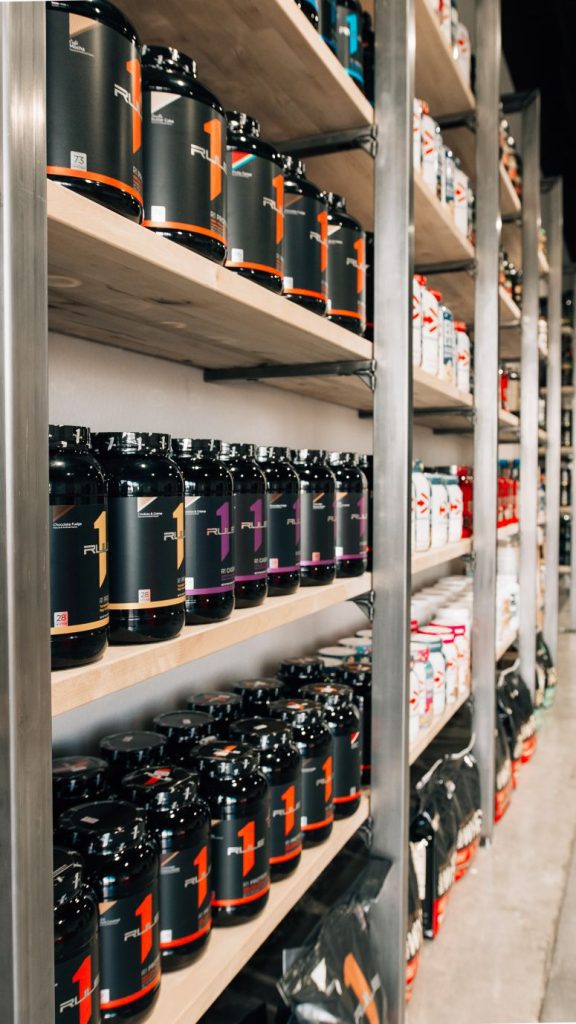How Digestive Enzymes Can Help Improve Gut Health
Good gut health is essential for overall health and wellbeing. Digestive enzymes are an important part of maintaining a healthy digestive system. They help break down food into smaller molecules that can be absorbed and used by the body.
Digestive enzymes are produced naturally in the body, but they can also be taken as a supplement. They are found in many foods, including fruits, vegetables, nuts, and seeds.
Digestive enzymes help break down proteins, carbohydrates, and fats. They also help the body absorb vitamins and minerals. Without these enzymes, the body would not be able to properly digest food and absorb the nutrients it needs.
Digestive enzymes can help improve gut health in several ways. They can help reduce bloating and gas, improve digestion, and reduce inflammation. They can also help break down food more quickly, which can help reduce symptoms of irritable bowel syndrome.
Digestive enzymes can also help improve the balance of good and bad bacteria in the gut. This can help reduce the risk of infection and improve overall gut health.
If you are considering taking digestive enzymes, it is important to talk to your doctor first. They can help you determine the right type and dosage for your needs.
In conclusion, digestive enzymes can be a great way to improve gut health. They can help break down food more quickly, reduce bloating and gas, and improve the balance of good and bad bacteria in the gut. If you are considering taking digestive enzymes, it is important to talk to your doctor first.
The Benefits of Probiotics for Gut Health
Probiotics are live microorganisms that are beneficial for gut health. They are found naturally in some foods, such as yogurt, and can also be taken as a supplement. Research has shown that probiotics can help to improve digestive health, boost the immune system, and even reduce the risk of certain diseases.
The gut is home to trillions of bacteria, both good and bad. Probiotics are the good bacteria that help to keep the bad bacteria in check. They help to maintain a healthy balance of bacteria in the gut, which is essential for overall health.
Probiotics can help to improve digestive health by increasing the number of beneficial bacteria in the gut. This can help to reduce symptoms of digestive issues such as bloating, constipation, and diarrhea. They can also help to reduce inflammation in the gut, which can help to reduce the risk of certain diseases.
Probiotics can also help to boost the immune system. They can help to reduce the risk of infections by preventing the growth of harmful bacteria in the gut. They can also help to reduce inflammation, which can help to reduce the risk of certain diseases.
Finally, probiotics can help to reduce the risk of certain diseases. Studies have shown that probiotics can help to reduce the risk of certain types of cancer, as well as reduce the risk of heart disease. They can also help to reduce the risk of obesity and type 2 diabetes.
Overall, probiotics can be beneficial for gut health. They can help to improve digestive health, boost the immune system, and reduce the risk of certain diseases. If you are looking to improve your gut health, consider adding probiotics to your diet.
The Role of Diet in Maintaining Healthy Gut Bacteria
Eating a healthy diet is one of the most important things you can do to maintain a healthy gut. The bacteria in your gut play a vital role in your overall health, and the food you eat can have a big impact on the balance of bacteria in your gut.
A healthy diet should include a variety of whole foods, such as fruits, vegetables, whole grains, legumes, nuts, and seeds. These foods are packed with essential vitamins, minerals, and fiber, which are all important for maintaining a healthy gut. Fiber is especially important, as it helps to feed the beneficial bacteria in your gut. Eating a variety of these foods will ensure that you get a wide range of nutrients and fiber to keep your gut bacteria happy and healthy.
In addition to eating a variety of whole foods, it’s also important to limit your intake of processed foods, which are often high in sugar, salt, and unhealthy fats. These foods can disrupt the balance of bacteria in your gut, leading to digestive issues and other health problems.
Fermented foods, such as yogurt, kefir, sauerkraut, and kimchi, are also great for maintaining a healthy gut. These foods contain beneficial bacteria that can help to restore balance in your gut.
Finally, it’s important to stay hydrated. Drinking plenty of water helps to keep your digestive system running smoothly and can help to flush out toxins.
By following these simple tips, you can help to maintain a healthy balance of bacteria in your gut and keep your digestive system running smoothly. Eating a healthy diet, limiting processed foods, eating fermented foods, and staying hydrated are all important steps in maintaining a healthy gut.





